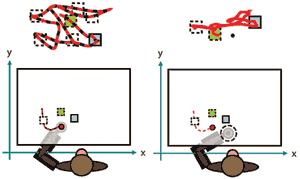Citationst
By Lydialyle Gibson
Tuned out
For years, digital video recorders like TiVo, which give viewers the option to skip commercials, have had television advertisers worried. But a study by Chicago Booth economist Jean-Pierre Dubé and researchers at Duke and the Netherlands’s Tilburg University rebuts the conventional wisdom that the recorders (DVRs) dampen sales. The researchers examined a survey in which participating households were given TiVos that collected viewer data. Matching that information with each household’s shopping history one year before and two years after the TiVos’ arrival, the researchers found no effect on the purchase of advertised brands, even among those who used DVRs the most. Reporting their findings in the December Journal of Marketing Research, the authors posited several explanations, among them that viewers do not watch most of the programs they record—only five percent of recorded shows were ever actually viewed—that they simply ignore commercials on live TV, or that television ads don’t make much difference in the first place.
Race against childhood cancer
Black, Asian, and Native American children are more likely than whites and Latinos to die after treatment for neuroblastoma, a common form of childhood cancer. Analyzing a study of 3,500 patients with the disease, Medical Center researchers found that while 75 percent of white and Latino patients survived five years after diagnosis, only 67 percent of blacks, 63 percent of Asians, and 39 percent of Native Americans survived five years. A major reason black patients fare worse, said Medical Center pediatrician and senior author Susan Cohn, is that they are often older at the time of diagnosis, with advanced-stage disease. The results, published online November 22 in the Journal of Clinical Oncology, also showed that black patients with high-risk disease are more likely to have residual cancer after treatment, leading to a late-occurring relapse or progression. Follow-up studies are under way to determine if genetic factors contribute to neuroblastoma’s racial disparities.
Monkey feel, monkey do

Already, brain-controlled devices help paralyzed people perform daily activities. But the next generation of these machines may include a sensory stimulus, which neuroscientist Nicholas Hatsopoulos found to improve performance in monkeys. In the December 14 Journal of Neuroscience Hatsopoulous and coauthors at Chicago and the University of Oklahoma reported that in a series of experiments, monkeys could better control a computer cursor using a brain-machine interface when they were outfitted with sleeve-like, robotic exoskeletons that moved their arms in tandem with the cursor. The sleeves provided neural feedback that let them sense their arms’ position and movement, improving the monkeys’ performance 40 percent. Hatsopoulos and his coauthors added that many patients with motor disabilities may retain partial neural feedback. (Image courtesy Nicholas Hatsopoulos.)
Response to violence
Teenagers growing up in dangerous neighborhoods adopt a multitude of strategies for coping with violence. In a series of in-depth interviews with 32 Chicago-area 14- to 17-year-olds, School of Social Service Administration researcher Dexter Voisin examined their responses to physical attacks, fights, police incidents, and gun violence, including murders. The teens, few of whom were from low-income families, told Voisin about seeing friends die in front of them, getting into fights, and having police arrest family members in their homes. The most common coping strategies included associating with neighbors who were not part of the violence, avoiding situations where violence might break out—which often meant isolating themselves—and resigning themselves to the circumstances or learning to fight back. Voisin, who published his findings in the December Journal of Interpersonal Violence, reported that a quarter of the students said they believed good grades leading to good jobs would be their way out of the neighborhood.
Return to top
